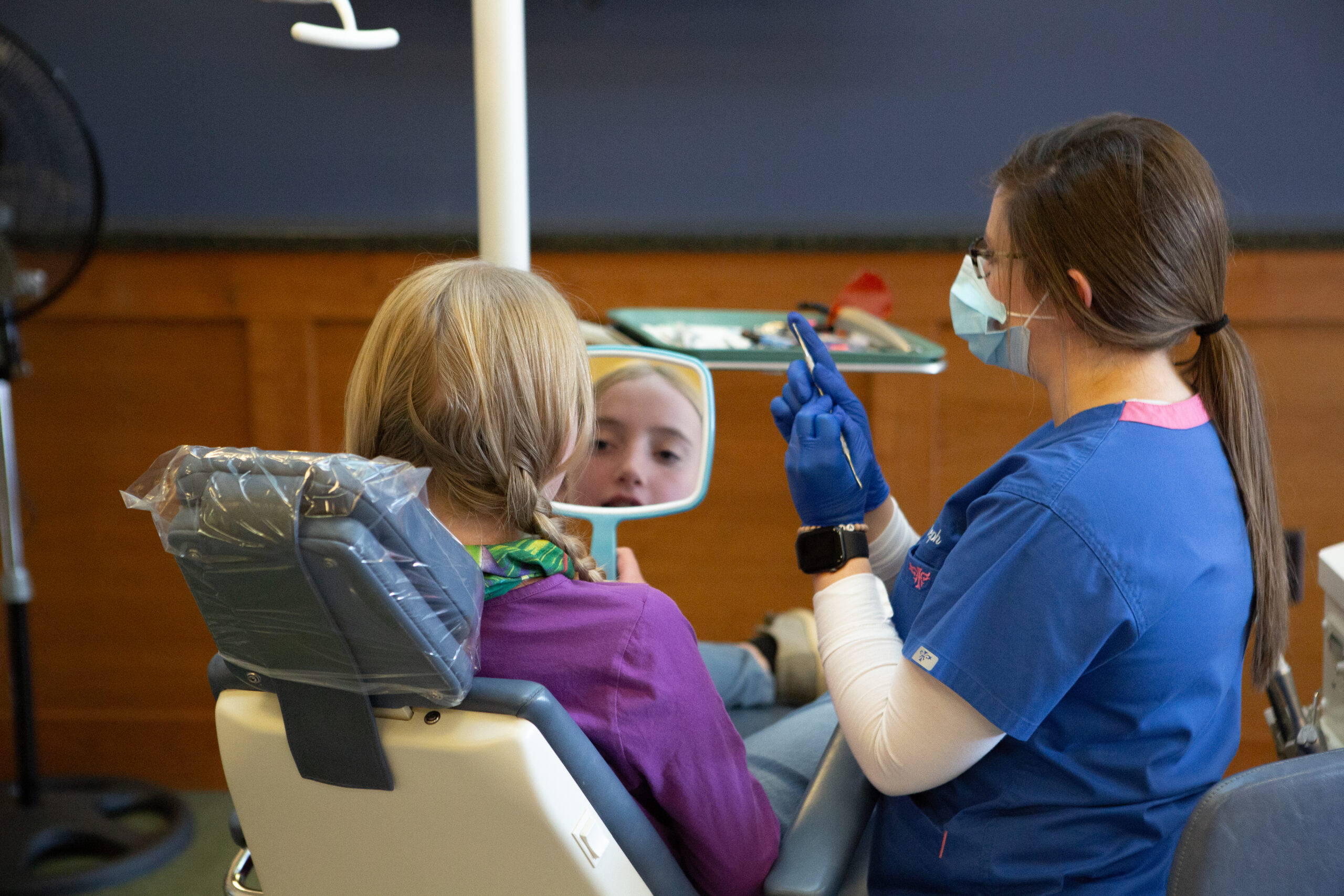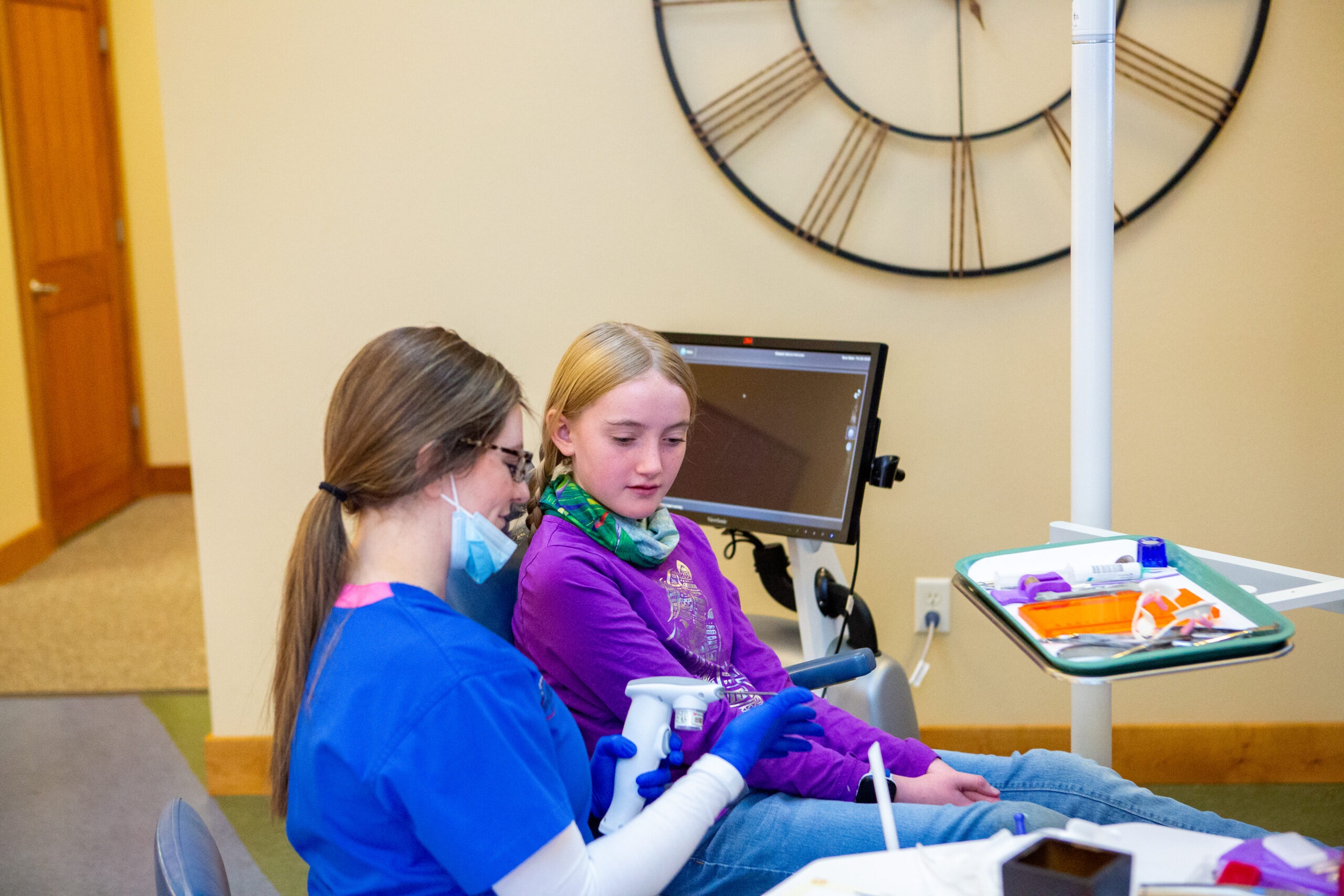Are you a parent with little kids in Miles City or Billings? If so, you’ve watched them suck their thumbs. Like most parents, you probably used pacifiers too. That’s nothing to worry about. Most parents have done just that. But what do you do if you’re concerned your little ones might continue to suck their thumbs? What if you think they’re too old for a pacifier? Have you considered how these habits might shape your child’s smile? At Kovacs Orthodontics, we explore the world of early oral habits, their impact on your child’s developing smile, and how Dr. Kovacs can help maintain that radiant grin. Here’s how pacifiers and thumb-sucking affect kids’ smiles.
Pacifier And Thumb-Sucking Fundamentals
You’ve probably noticed that many little ones, including your own, love to suck their thumbs or use a pacifier. It’s a natural thing that kids do, especially when relaxing or feeling slightly stressed out.
In the early years, thumb-sucking and pacifier use is usually no big deal. In fact, they can help soothe and calm your child. But as your kiddo grows and their teeth start to come in, these habits can affect their oral health if they keep up for too long. Understanding these habits and what they mean for your child’s dental health is essential.
Thumbing A Ride On Oral Health
Thumb-sucking and pacifier use are normal behaviors for babies and toddlers. But if these habits go on too long, they can greatly impact how your child’s mouth develops. Constant pressure from the thumb or pacifier can change the shape and alignment of the teeth and roof of the mouth, leading to issues like open bite, crossbite, or overbite.
An open bite is when the top and bottom front teeth are pushed outwards, creating a gap even when the mouth is closed. A crossbite happens when the top teeth fit inside the lower teeth, which can lead to the jaw growing unevenly. An overbite is when the top front teeth overlap the bottom front teeth a lot, often caused by the constant pressure of the thumb or pacifier.
Also, thumb-sucking and pacifier use over a long time can affect how the jaw develops, leading to changes in its shape and structure. This can lead to problems with speaking, chewing, and can even change how their face looks.
Pacifying Your Concerns
As kids grow up, the urge for thumb-sucking and the need for a pacifier should naturally fade away. Most little ones stop these habits between the ages of two and four, right around when their permanent front teeth are ready to come in. At this stage, any changes in the mouth and jaw caused by these habits can still fix themselves.
But if your child keeps sucking their thumb or using a pacifier after this age, especially when their permanent teeth start coming in, it might be time to pay more attention. Signs that you need to step in include changes in your child’s bite, trouble with speaking, or if your child feels embarrassed about the habit.
How intensely your child sucks their thumb or pacifier also matters. If they’re just passively sucking – where the thumb or pacifier just rests in their mouth – it’s less likely to cause dental issues than active sucking, which involves a lot of mouth movement.
Two Thumbs Up: What You Can Do
Breaking the thumb-sucking or pacifier habit can be challenging, but with a bit of patience and the right approach, you can do it. Here are some tips that might help.
Instead of scolding your child when they suck their thumb or use a pacifier, give them a big smile or a hug when they don’t. You could even set up a reward system for reaching specific goals.
If your child tends to suck their thumb or use a pacifier when stressed or anxious, you should try to figure out what’s causing these feelings and find other ways to comfort them.
If your child is a bit older, talk to them about why it’s important to stop and encourage them to make the decision to quit.
Instead of trying to stop the habit all at once, it might be easier to reduce the amount of thumb-sucking or pacifier use slowly.
Gentle reminders can help your child remember to stop the habit.
If you’re having trouble breaking the habit at home, talk to Dr. Kovacs. He can give you professional advice and might recommend special appliances that discourage thumb-sucking or pacifier use.
Remember, every child is different, and what works for one might not work for another. The most important thing is to be patient, supportive, and consistent.
What Kovacs Orthodontics Can Do
At Kovacs Orthodontics, we get how much parents worry about thumb-sucking or pacifier use. Our team, led by Dr. Kovacs, is dedicated to giving personalized care and advice to help manage these habits and their potential effects on your child’s oral health.
We offer advanced treatment options and a friendly, welcoming environment to make every visit a positive experience for you and your child. We provide thorough consultations to check on your child’s oral development and can give professional advice on the best ways to break these habits.
If your child needs orthodontic treatment, Dr. Kovacs has a lot of experience treating all sorts of orthodontic issues in children, so you can be sure your child is getting the best care possible. Our goal is to help your child have a healthy, beautiful smile and make the process as comfortable and stress-free as possible.
Orthodontic Care For Kids With Dr. Kovacs
In the end, thumb sucking and pacifier use are pretty common in early childhood, but if they go on for too long, they can affect a child’s oral health. This is true for kids in Miles City and Billings. We’re here to help guide you through this journey at Kovacs Orthodontics. If you’re worried about your child’s habits, don’t hesitate to schedulea free consultation with Dr. Kovacs today. Let’s work together to keep your child’s smile awesome!



